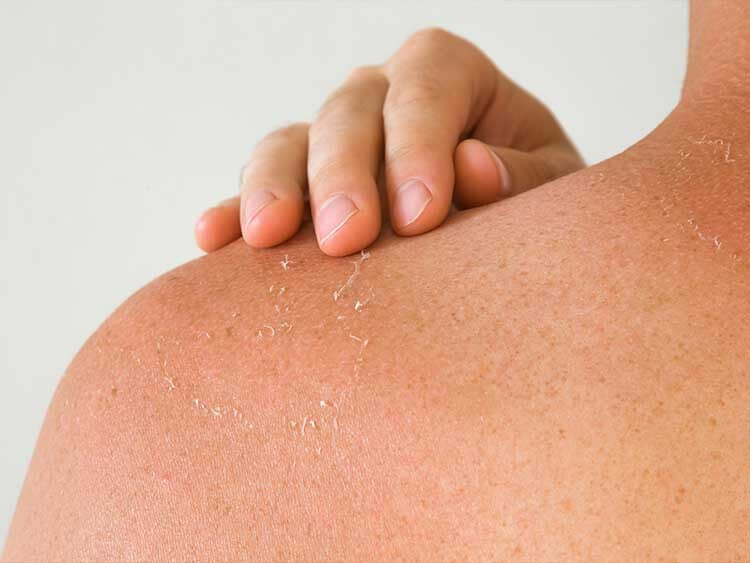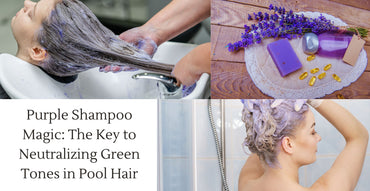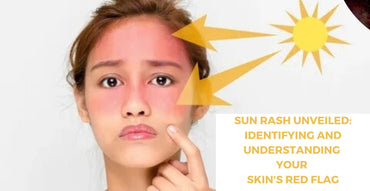As a UV filter, benzophenone-4 is a substance that is frequently found in hair care products. It is made to shield hair from the damaging effects of UV rays, which can result in breakage, dryness, and damage. A powerful UV filter, benzophenone-4 can shield hair from the damaging effects of UV rays. Skin irritation, environmental issues, potential health hazards, and a lack of UV protection are some of its potential downsides. When determining whether or not to use benzophenone-4 in hair care products, it's crucial to balance the pros and cons.
What is Benzophenone-4 and How Does it Protect Hair from UV Damage?
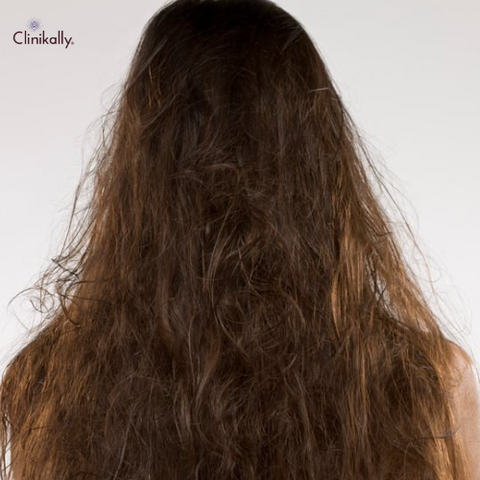
Benzophenone-4 is a UV filter that is commonly found in hair care products. It is designed to protect hair from the harmful effects of UV rays, which can cause breakage, dryness, and damage. When UV rays are absorbed by benzophenone-4, they are converted to heat energy and then released safely. UV radiation is known to damage hair fibres by destroying the proteins and lipids that make up the structure of the hair. This harm may result in dryness, brittleness, split ends, and colour loss. By forming a protective shield around the hair fibres, benzophenone-4 protects the hair from the damaging effects of UV rays.
A powerful UV filter that can offer long-lasting defence against UVA and UVB rays is benzophenone-4. While UVB radiation is mostly to blame for short-term damage like sunburn, UVA radiation is the main cause of long-term hair damage. Benzophenone-4 assists in preventing both short-term and long-term damage to the hair by offering protection against both types of radiation. It functions by absorbing UV rays and transforming them into heat energy, which is then harmlessly released. Benzophenone-4 aids in shielding the hair fibres from UV ray damage by producing a barrier that shields them from entry.
Benzophenone-4 as a Hair Sunscreen for UV Protection
In order to protect consumers from the negative effects of UV radiation, benzophenone-4 is frequently used in hair care products as a UV filter. The sun's UV rays can harm the hair, resulting in dryness, breakage, and colour loss. When benzophenone-4 absorbs UV radiation, it converts it to heat energy, which is then harmlessly released. This stops UV rays from damaging the hair fibres by keeping them from penetrating. The UVA and UVB rays that cause long-term and short-term hair damage, respectively, are both blocked by the highly effective UV filter benzophenone-4.
Benzophenone-4-containing hair care products can help shield the hair from UV ray damage, especially when exposed to the sun for an extended period of time. While these products can be used year-round, the summer, when UV radiation levels are at their highest, is when they are most crucial. It is crucial to remember that other ingredients in hair care products offer UV protection in addition to benzophenone-4. The UV filters octyl methoxycinnamate, octocrylene, avobenzone, and titanium dioxide are also frequently included in hair care products. Combining several UV filters can provide even more UV protection.
Benzophenone-4 and Its Impact on Hair Colour Fading and Texture
While benzophenone-4 effectively shields hair from UV rays, it can eventually have a deleterious effect on hair colour and texture. Benzophenone-4, especially in hair that has been coloured, can cause hair colour to fade. This is because the UV filter may damage the molecules that give the hair its colour, hastening the fading of the colour. Some hair care products may include additional colour-preserving chemicals like antioxidants or colour protectants to counteract this effect.
Benzophenone-4 can change the texture of hair and affect its colour. Even when employing a UV filter like benzophenone-4, prolonged exposure to UV rays can make hair dry and brittle. This may result in breakage, split ends, a rough or frizzy texture, and more. Use hair care products with additional helpful components to reduce the potentially harmful effects of benzophenone-4 on hair texture and colour. This could include hydrating components that keep the hair hydrated and prevent dryness, including humectants or natural oils. Additionally, regularly utilising a deep conditioner or hair mask can keep the hair strong and healthy.
The Potential Risks of Benzophenone-4 in Hair Products
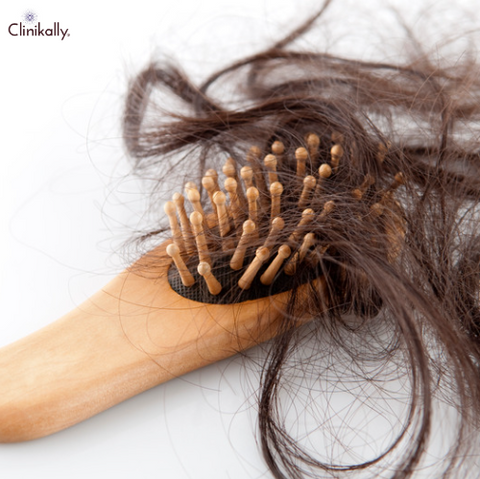
One issue is that, like many other UV filters, benzophenone-4 can build up in the environment and possibly harm aquatic life. Benzophenone-4 can infiltrate rivers and remain in the environment when goods containing it are flushed down the drain. Some producers are creating benzophenone-4 substitutes that are less harmful to the environment in an effort to reduce this risk. Benzophenone-4 may pose certain health hazards, which is another worry. However, some researchers have suggested that benzophenone-4 may have estrogenic activity, which would mean that it might mimic the actions of oestrogen in the body, even if there is no concrete evidence that it is damaging to human health.
This has caused some people to worry that long-term exposure to benzophenone-4 may have harmful consequences for their health, especially if they often use hair care products that contain the chemical. However, it is important to note that regulatory bodies like the FDA and the European Union generally consider the amounts of benzophenone-4 typically present in hair care products to be safe for use. However, some customers could choose to stay away from hair care products that include benzophenone-4 in favour of those that use different UV filters.
Benzophenone-4 and Its Effects on Hair Moisture and Elasticity
UV light exposure can cause the hair to become dry and lose moisture. In order to stop UV rays from damaging the hair shaft and penetrating it, benzophenone-4 works by absorbing them. While benzophenone-4 can aid in preventing hair dehydration, it can also cause a decrease in hair moisture over time. According to studies, exposure to benzophenone-4 over an extended period of time can make hair dry and brittle, decreasing its suppleness. As a result, the hair may become more prone to breakage and split ends, as well as develop a harsh or frizzy texture.
Utilising hair care products with moisturising components is crucial to fending off any potential harm that benzophenone-4 may do to hair moisture and elasticity. This could contain humectants like glycerin or panthenol or natural oils like argan oil or coconut oil. Additionally, regularly applying a deep conditioning treatment or hair mask can keep the hair moisturised and robust. While benzophenone-4 effectively shields hair from UV rays, over time, it may also cause a decline in the hydration and suppleness of the hair. Use hair care products with moisturising elements and take precautions to keep the hair moisturised and healthy to reduce any potential harm benzophenone-4 may cause to the hair.
Benzophenone-4 and Its Link to Hair Breakage and Weakening
According to some data, regular use of hair care products containing benzophenone-4 may cause hair to break and weaken. This is due to the fact that over time, benzophenone-4 can make hair dry and brittle, increasing its susceptibility to breakage and split ends. According to one study in the Journal of Cosmetic Science, hair treated with benzophenone-4 and subjected to UV light broke more frequently than hair not treated with benzophenone-4. The UV filter may have damaged the hair fibres, making them more brittle, according to the study's authors.
Another study indicated that continuous exposure to UV radiation could harm the hair cuticle, which can also contribute to hair breakage and weakening. This study was also reported in the Journal of Investigative Dermatology. As a UV filter, benzophenone-4 might exacerbate this harm. Use hair care products that contain moisturising and strengthening elements to reduce the potentially detrimental effects of benzophenone-4 on the hair. This could include organic oils like coconut or argan oil or proteins like keratin or collagen. Additionally, regularly applying a deep conditioning treatment or hair mask can keep the hair moisturised and robust.
Understanding Product Labelling and Identifying Benzophenone-4 in Hair Products
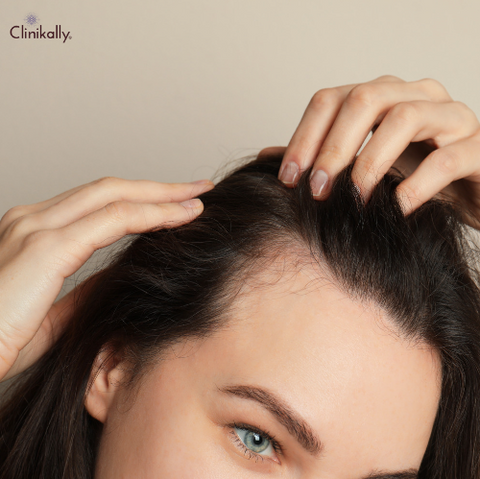
Reading the product label is the best place to start when trying to identify benzophenone-4 in hair care products. The Food and Drug Administration (FDA) in the US mandates that all ingredients in cosmetic products be listed on labels in descending order of concentration. This indicates that the substances that are present in the highest amounts are those that are stated at the top of the label. On the product label, benzophenone-4 may be listed under several different names, including:
-
BP-4
-
Benzophenone-4
-
2-Hydroxy-4-methoxybenzophenone
-
Sulisobenzone
-
UV-284
You can also look for products that are labelled "benzophenone-4 free" or that employ other UV filters if you are concerned about the presence of benzophenone-4 in your hair care products. It's crucial to be aware of additional potentially dangerous substances that might be present in hair care products in addition to benzophenone-4. Sulphates, parabens, and formaldehyde-releasing preservatives may be included in this. Making educated judgments regarding the hair products you use can be aided by reading product labels and researching ingredient sources.
How to Read Hair Product Labels to Identify Benzophenone-4 and Other Harmful Ingredients
The first step in locating dangerous ingredients, such as benzophenone-4, is to read the labels of hair products. Here are some pointers for understanding labels for hair products:
-
Check the ingredient list: The Food and Drug Administration (FDA) in the United States mandates that the labels of cosmetic products list all ingredients in descending order of concentration. This indicates that the ingredients that are present in the highest amounts are those that are listed at the top of the label.
-
Look for the following benzophenone-4 common names: As previously mentioned, the product label may list benzophenone-4 under a number of different names. BP-4, 2-Hydroxy-4-methoxybenzophenone, Sulisobenzone, UV-284, or Benzophenone-4 are some of the names to look for.
-
Examine additional ingredients that might be harmful: There might be other potentially harmful ingredients in hair care products in addition to benzophenone-4. Formaldehyde-releasing preservatives, sulphates, and parabens are a few of these. Look for ingredients like Quaternium-15, Methylparaben, Propylparaben, Diazolidinyl urea, Imidazolidinyl urea, and Sodium Lauryl Sulfate (SLS), among others.
-
Look for claims: Product labels may include statements like "sulfate-free" or "paraben-free" that pertain to the product. The best course of action is to learn more about the product and its components because not all claims are legally warranted.
-
Do your homework: If you have questions about a particular ingredient, do some research to find out more about it and how it might affect your hair and general health.
It is essential to read hair product labels and comprehend the ingredients in order to spot potentially harmful ingredients like benzophenone-4 and make wise choices about the products you use on your hair.
Common Hair Care Products that Contain Benzophenone-4 and Alternatives to Consider
Shampoos, conditioners, leave-in treatments, and styling products all frequently include the chemical benzophenone-4. Some examples of hair care items that might include benzophenone-4 are as follows:
-
Sunscreen shampoos and conditioners: These items are made to protect the hair and scalp from UV rays, and benzophenone-4 is frequently utilised as a UV filter.
-
Treatments applied after washing your hair: Some leave-in hair treatments, like serums and sprays, may contain benzophenone-4 to block UV rays and stop color fading.
-
Products for styling hair: Benzophenone-4 may be found in gels, mousses, and hairsprays to shield hair from UV deterioration.
There are options to think about if you are concerned about the possible risks connected to benzophenone-4. These alternatives include, among others:
-
Titanium dioxide: This mineral component naturally and physically protects the hair and scalp from UV rays.
-
Zinc oxide: Zinc oxide, a common ingredient in sunscreens and other skin care products, is another mineral that protects hair and scalp from UV rays.
-
Natural oils: Many natural oils, including coconut oil and jojoba oil, can hydrate and nourish hair while also offering a small amount of UV protection.
-
Plant extracts: Antioxidants found in some plant extracts, including grape seed and green tea extract, may help shield hair from UV damage.
When purchasing hair care products, it is critical to read the label and look for substitute ingredients that can provide UV protection without the potential side effects of benzophenone-4.
Formulating Safe and Effective Hair Products with Benzophenone-4

To shield the hair from the sun's damaging rays, benzophenone-4 is a UV absorber that is frequently found in shampoos, conditioners, and styling treatments. To ensure that these goods are not detrimental to the consumer, it is crucial to formulate them properly and effectively. Here are some guidelines for using benzophenone-4 to create secure and efficient hair products:
-
Choose the right concentration: The intended use and level of protection required should be taken into consideration when choosing the benzophenone-4 concentration in the hair product. The maximum allowed concentration of benzophenone-4 in cosmetic products is 5%.
-
Choose a compatible base: It is critical to select a compatible base for the hair product that is compatible with benzophenone-4. Benzophenone-4 is soluble in alcohol and oil, but insoluble in water. As a result, it is frequently used in products containing alcohol or oil, such as hair sprays or leave-in conditioners.
-
Test for compatibility: Before formulating the product, it is critical to test the compatibility of benzophenone-4 with other ingredients. Testing the formulation for stability and performance is crucial because benzophenone-4 might not mix well with some ingredients, like cationic surfactants.
-
Consider pH: When formulating with benzophenone-4, the pH of the hair product should also be taken into account. Because benzophenone-4 is stable in the pH range of 4-8, formulating the product within this range is critical.
-
Ensure proper labelling: It is critical to ensure the hair product is properly labelled with the concentration of benzophenone-4 as well as any necessary warnings or precautions. Because benzophenone-4 can cause skin irritation and allergic reactions in some people, it is critical that this information be included on the label.
By following these tips, hair care product manufacturers can formulate safe and effective products that contain benzophenone-4 to protect the hair from the damaging effects of the sun.
The Importance of Ingredient Interactions and Product Testing in Hair Product Formulation
Ingredient interactions and product testing must be considered throughout the creation of hair products. The effectiveness and safety of a hair product depend on how its components interact with one another and how it performs in various environmental conditions. For the following reasons, ingredient interactions and product testing are essential in the creation of hair products:
-
Ensure product stability: A hair product's stability is critical to its performance and safety. Ingredient interactions can affect a product's stability, resulting in changes in texture, colour, or scent. Product testing can aid in the identification of stability issues and ensure that the product remains stable under varying conditions such as temperature and humidity.
-
Increasing the effectiveness of a product: The interactions between the ingredients in a hair product determine how well it works. Interactions between ingredients can make a product less effective, leading to subpar results or undesirable effects. Product testing can assist in identifying problems with product performance and allowing for changes to improve the product's effectiveness.
-
Identifying potential safety concerns: Ingredient interactions can also have an impact on the safety of a hair product. Some ingredients may react to produce harmful by-products, whereas others may be incompatible and cause skin irritation or other negative reactions. Product testing can assist in identifying potential safety issues and ensuring the product is fit for use.
-
Meeting regulatory requirements: Regulatory requirements govern the types and concentrations of ingredients that may be used in hair care products. It is necessary to test the product to make sure it adheres to these requirements and is secure for use.
The formulation of hair products must take into account ingredient interactions and product testing. They are necessary to make sure that a hair product is stable, effective, and safe. To deliver customers high-quality and secure hair care products, manufacturers should carry out extensive testing to identify and address any issues with ingredient interactions and product performance.
Best Practices for Using Benzophenone-4 in Your Hair Care Routine
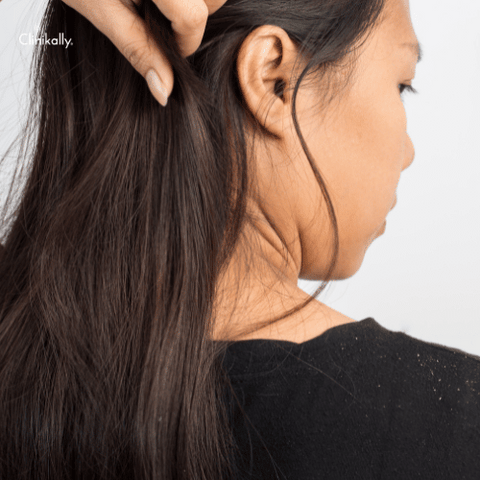
To prevent UV damage to the hair, benzophenone-4 is a typical ingredient in hair care products. While benzophenone-4 is often safe for use in hair care products, best practices should be followed to guarantee its efficient and secure use. The following are some suggestions for properly utilising benzophenone-4 in your hair care regimen:
-
Check the concentration: The concentration of benzophenone-4 in hair care products can vary. Check the concentration of benzophenone-4 in the product to ensure that you get the desired level of protection. The maximum allowed concentration in cosmetic products is 5%.
-
Apply the product correctly: To ensure that you get the most out of the benzophenone-4, it is critical that you apply it correctly. Follow the product label's directions for the recommended amount and method of application.
-
Use in addition to other sun protection measures: Benzophenone-4 can aid in preventing UV damage to hair, but it should not be used in place of other sun protection measures. If you're going to be out in the sun, wear a hat or use an umbrella to provide extra protection.
-
Keep an eye out for signs of irritation: Some people are sensitive to benzophenone-4 and may experience skin irritation or allergic reactions. If you experience any irritation or discomfort, stop using the product and seek medical attention.
-
Choose high-quality products: When shopping for hair care products containing benzophenone-4, look for high-quality items from reputable brands. Seek out products that have been thoroughly tested and proven to be both safe and effective.
For UV protection, benzophenone-4 can be a useful ingredient in hair care products. By following these best practices, you can ensure that you are using benzophenone-4 in your hair care routine safely and effectively.
Final Thoughts: The Role of Benzophenone-4 in Protecting Your Hair from Sun Damage
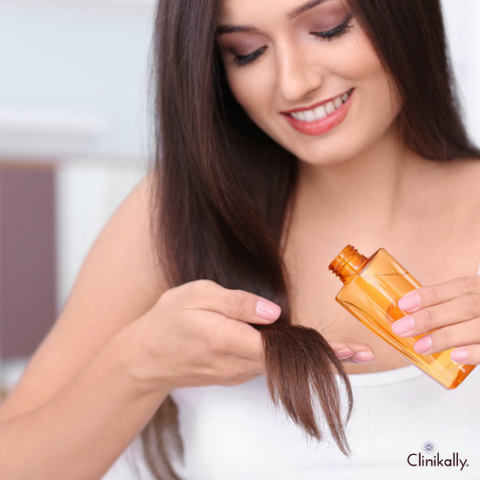
To summarise, benzophenone-4 protects hair from UV damage and is a useful ingredient in hair care products. Hair damage from UV radiation can result in dryness, breakage, and discoloration. By absorbing UV rays and keeping them from reaching the hair, benzophenone-4 can aid in reducing these effects. Benzophenone-4 is often safe for use in hair care products, but it must be used properly and in conjunction with other sun protection measures. Be mindful of the amount of benzophenone-4 in hair care products and keep an eye out for any irritation or allergic reactions. A beneficial addition to your hair care regimen that can help shield your hair from UV ray damage is benzophenone-4. The best practices for the use of high-quality benzophenone-4-containing hair care products can help you maintain strong, healthy hair even in the most intense sunlight.

